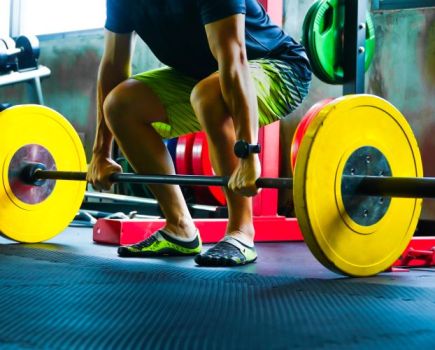Personal trainer and self-described ‘research nerd’ Ben Carpenter answers the question: is fasted cardio good for fat loss?
If you want to lose body fat, you have probably heard that doing fasted cardio is good for helping you achieve your fat loss goals quicker. Many people roll out their best exercise mat and do aerobic training first thing in the morning before they eat breakfast, hoping to get faster fat loss results than if they had waited until they had eaten – and there is some solid rationale behind this.
The idea with fasted cardio is that as you are training on an empty stomach, you are forcing your body to use its fat stores for fuel rather than readily available energy from whatever you have just eaten. As liver glycogen (stored carbohydrate) and insulin (a ‘storage’ hormone) are both lower first thing in the morning, it makes sense that your body needs alternative fuel sources to power you through your workout – and perhaps body fat will do the job.
The science behind fasted cardio
Research has shown that when you exercise in the fasted state, rates of fatty acid oxidation are higher than if you exercise after eating. In simplified terms, this means that your body does indeed burn more fat for fuel, which sounds exciting.
However, it is important to understand that your body using more fat for fuel is not necessarily indicative of your body burning more body fat. Think of your body like a fire: if you throw coal on a fire, you will burn coal for fuel and if you throw wood on the fire, you will burn wood. In both cases, you haven’t changed the size of the fire necessarily; you just changed its fuel source.
Why calories are key for fat loss
Your body can change its fuel source, but that doesn’t change how much body fat you store. For example, if you suddenly eat a lot more dietary fat, your body will start using this for fuel. However, that doesn’t mean you are burning more actual body fat. If you want to change the size of a fire, you need to reduce the amount of energy you throw on it relative to how much it burns. If you want to lose body fat, you need to reduce the amount of energy you consume relative to how much you burn. Tracking calories and finding a calorie deficit, therefore, is key.
Rather than simply looking at what fuel source your body uses during the workout window (a tiny period of time) it makes sense to measure your actual body fat changes over the course of several weeks. In research studies that put participants through the same exercise programme, with one group exercising in the fasted state and the other in the fed state, both groups lost body fat with no significant differences between the two.
Basically, aerobic training is great for your health and can promote fat loss. But, whether you have eaten or not doesn’t seem to make much difference either way, so do whatever is most convenient for you.







